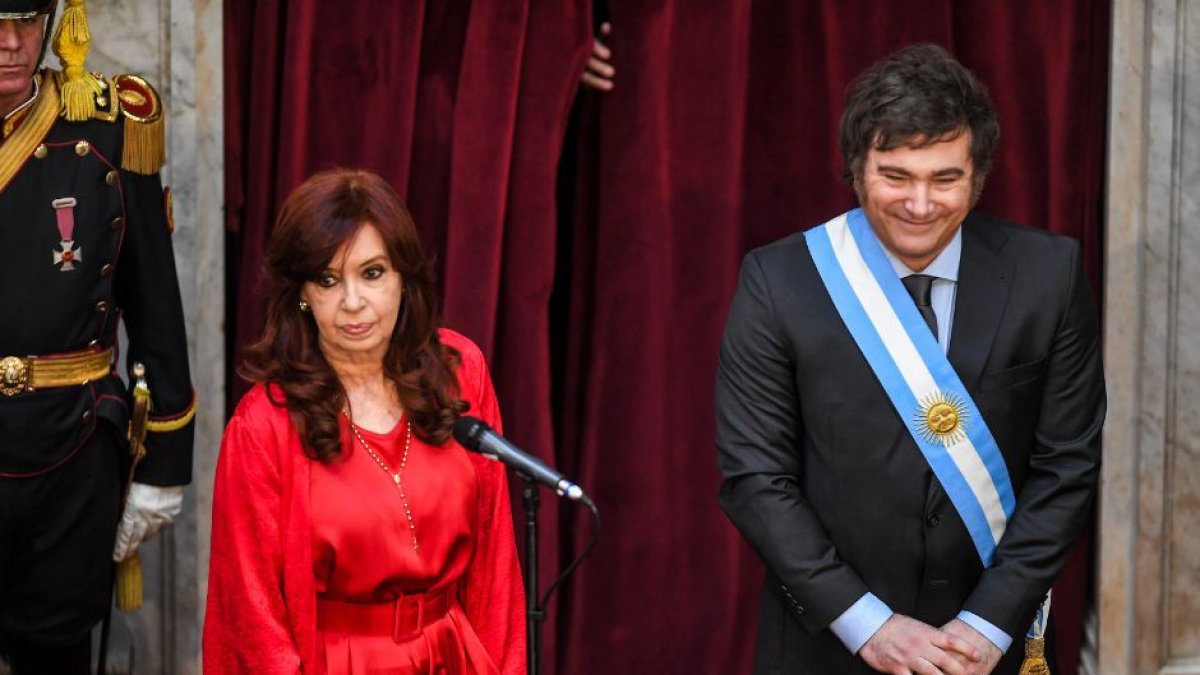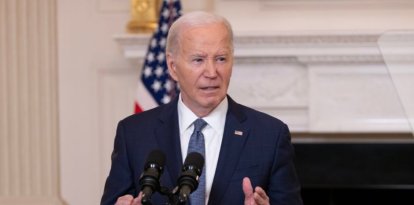Cristina Kirchner's influence: A way of doing politics that came to an end
A new, hopeful era has begun in Argentina. The previous one ended with a bang.

Cordon Press
This Sunday, just before walking into the room where she would swear in Javier Milei as the new president, the outgoing vice president, and once one of the most powerful, but fearsome, women in Argentina, Cristina Fernández de Kirchner, did something that speaks of her character and her legacy louder than words: She gave the middle finger to the press and to the Argentines who, in celebration, praised the new president.
The middle finger, a big f*** you, to decent Argentina, which has turned its back on everything that Cristina Kirchner represents.
Since the beginning of the century, except for Mauricio Macri's time in office (2015-2019), Argentina has been governed by the harmful ideas of Cristina Fernández de Kirchner. First, with her husband, Néstor Kirchner, from 2003 to 2007; then she, until 2015, when Macri, from the center-right, succeeded him, and then returned to power, now as vice president, under Alberto Fernández's deplorable and forgettable administration.
This time candidate Sergio Massa lost, not to a politician with extensive experience, but rather to a peculiar libertarian academic who has been immersed in the corrosive world of politics for only two years. It wasn't just any defeat. It was a humiliating and resounding failure. A very important Argentine majority, forcefully, repudiated the Kirchnerist model.
Why? Well, because this century Argentina went from being one of the most prosperous countries in the Western Hemisphere, closer to the first world than the third, to becoming a miserable Latin American country, eaten away by inflation, an aggressive devaluation of its currency, organized crime and poverty, at the hands of the Kirchner administrations, who tried to bring the poisonous Castro and Chavista model of 21st Century Socialism to a nation which was once so rich and so cultured.
Subsidies, price controls, expropriations, impunity, corruption, violence. The legacy of Kirchnerism weighs so much on Argentina that this Sunday when Javier Milei took office, his speech was not encouraging at all. It was quite the opposite. Although he was enthusiastic, he was not generous. He was realistic. Argentina is in tatters and getting out of the hole will not only not be easy but will be traumatic, hard and unbearable. We will have to do what no one wants to do because, as the new president pointed out, there is a light at the end of the tunnel.
That legacy, which was so familiar to Latin Americans from other countries where the same Castroism and Chavism have also governed, was embodied in the insolent, but honest gesture of Cristina Fernández de Kirchner.
It was what they did for the many years that they governed. It was a big f*** you to every Argentinian. It could not be otherwise. They are the gestures of the caste, as the now president would say. Childish, ordinary and rude. That's how they worked and that's how they got as far as they did. Their time was up, because in the last election, on November 19, Argentines said “f*** Kirchnerism!” And it worked.
























